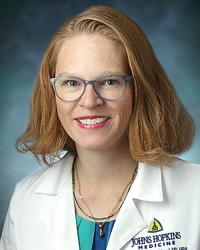Greater Value Portfolio 2025 Grantees
The Foundation is excited to officially announce the latest recipients of the Greater Value Portfolio grant program. This initiative supports two-year research projects with a maximum award of $440,000 each, aiming to advance promising approaches for a more valuable healthcare system. The program’s objective is to assess tools and strategies that organizations can readily employ to enhance the value of healthcare services for patients and communities. Additionally, applicants are required to collaborate with a healthcare service delivery organization or be affiliated with a research unit integrated into a healthcare organization.

J. Brian Cassel, PhD| Virginia Commonwealth University| “Scaling Access to Palliative Care Across Healthcare Settings”
Dr. J. Brian Cassel of Virginia Commonwealth University is leading a study to demonstrate the value and scalability of cross-setting palliative care (PC). Unlike hospice, PC supports seriously ill patients alongside curative treatments, focusing on symptom management, effective communication, and patient-centered decision-making. Despite its proven benefits—including improved quality of life, caregiver support, and cost savings—access to PC remains inconsistent, particularly in clinic- and home-based settings. This study addresses these disparities by evaluating PC services within Advocate Health, a large nonprofit healthcare system operating across Illinois and Wisconsin.
The research aims to assess the uptake and equity of PC services across hospitals, clinics, homes, and hospices, examining utilization by factors such as disease stage, race, geography, and insurance status. It will also evaluate the clinical and economic impacts of PC, quantify unmet needs, and identify strategic investments required to expand access. Using data from 23 hospitals spanning five years, the study will combine quantitative analyses of outcomes and utilization with qualitative insights from patients, providers, and clinicians. The findings are expected to highlight the benefits of comprehensive PC, uncover gaps in access, and provide actionable recommendations for scaling PC services within value-based and fee-for-service payment models, ultimately supporting equitable care delivery for seriously ill patients nationwide.

Joshua Liao, MD, MSc| UT Southwestern Medical Center| “Advancing Equity in Value-Based Payments: Addressing Social Risk Factors”
Dr. Joshua Liao of UT Southwestern Medical Center is leading a study to refine Medicare’s approach to addressing social risk factors in value-based payment models. While these models aim to enhance care quality, they can inadvertently increase disparities by failing to consider the social needs of marginalized populations. To mitigate this, the Centers for Medicare & Medicaid Services (CMS) has incorporated the Area Deprivation Index (ADI) into its risk adjustment framework, directing resources to providers serving disadvantaged communities. However, limited evidence on the impact of neighborhood socioeconomic factors hinders further refinement and equitable application of this strategy.
Dr. Liao’s research seeks to fill this gap by exploring the relationship between socioeconomic disadvantage and patient outcomes, including mortality, preventable hospitalizations, and Medicare spending. The study will analyze CMS data to assess how neighborhood-level factors, such as housing and transportation, influence these outcomes. Using advanced statistical methods, the research will identify which dimensions of social disadvantage most significantly affect health disparities and costs. The findings will provide crucial insights to guide CMS and other payers in designing evidence-based policies that ensure value-based payments equitably serve communities with the greatest needs.

Susanne Muehlschlegel, MD, MPH| Johns Hopkins University School of Medicine| “Enhancing Decision-Making for Families of Severe Brain Injury Patients“
Dr. Susanne Muehlschlegel of Johns Hopkins University School of Medicine is leading a transformative study to improve shared decision-making (SDM) for families of patients with severe acute brain injury (SABI). SABI, resulting from strokes or traumatic brain injuries, impacts millions annually in the U.S., leaving families to navigate difficult “goals-of-care” decisions about life support in neuroICUs. Without effective SDM tools, these decisions may misalign with patient values, exacerbating emotional distress for families and driving unnecessary healthcare costs.
This study evaluates a web-based decision aid (DA) designed to enhance SDM by improving decision-making quality, reducing caregiver distress, and aligning care with patient preferences. The pilot trial, conducted in three neuroICUs, will compare usual care with the DA intervention, measuring outcomes such as patient care decisions, healthcare costs, and family psychological well-being three months post-intervention. Qualitative analyses will identify barriers and facilitators to implementing the DA across diverse healthcare settings. By fostering patient-centered care and reducing disparities in neuroICUs, this research lays the groundwork for broader adoption of SDM tools, with the potential for a large-scale trial to further advance health equity and quality of care.

Benjamin Xu, MD, PhD| University of Southern California (USC) Keck School of Medicine| “Transforming Glaucoma Care with AI and Telemedicine”
Dr. Benjamin Xu of the University of Southern California (USC) Keck School of Medicine is leading an innovative study to address disparities in glaucoma care through the ATLAS (AI and Teleophthalmology in Los Angeles) Initiative. Glaucoma, a leading cause of irreversible vision loss, disproportionately affects underserved Black and Hispanic communities, who face higher risks and limited access to care. As demand for eye care continues to outpace supply, and an ophthalmologist shortage looms by 2025, the ATLAS Initiative combines telemedicine and artificial intelligence (AI) to provide cost-effective, equitable, and accessible care for vulnerable populations in Los Angeles.
This study integrates a validated AI algorithm into a custom cloud-based platform to detect glaucoma from fundus images with high accuracy, comparable to experienced ophthalmologists. The research will evaluate the algorithm’s performance in detecting previously missed cases and ensure equity across racial and ethnic groups. By addressing clinical and implementation barriers, this approach aims to create a scalable model for early glaucoma detection, prioritizing resource allocation for underserved populations. The expected outcomes include reducing missed diagnoses, improving accessibility, and establishing a transformative, reproducible framework for integrating AI into healthcare systems to enhance equity and value-based care delivery.